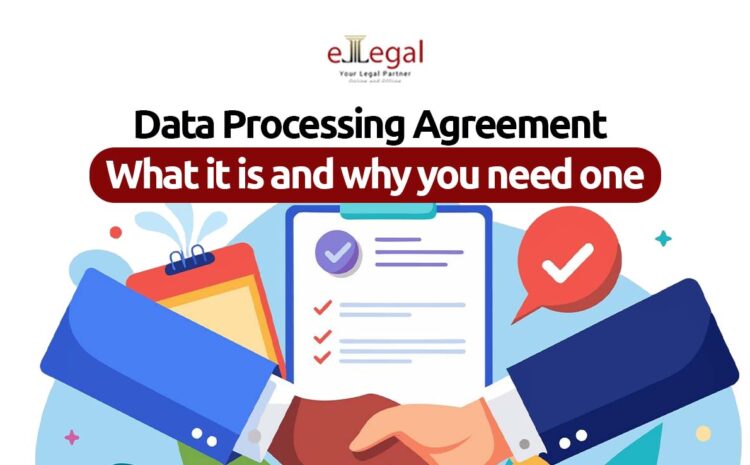
Data Processing Agreement; What it is and why you need one
It is essential for businesses that receive, analyze, and maintain their own databases to treat data privacy with importance.
To ensure that data management is handled above board, and it complements the business goals with actionable analytics, professional third-party data privacy experts are to provide their partners with comprehensive data processing agreements (DPAs) which most times the compliance officer is most likely involved in drafting and negotiating the data protection agreement.
Understanding Data Processing Agreement
A data processing agreement is a legal contract that specifies the rights, obligations, and actions between a data controller (the entity that owns the data) and a data processor (the entity that processes the data on behalf of the controller).
It outlines what both parties can and are not allowed to do in terms of data management. This is vital as having this in place will be the business abiding by data protection laws like the General Data Protection Regulation (GDPR) in the European Union or similar state laws in the jurisdiction where the company is located.
A vigorous data processing agreement is, in most cases, not just a legal formality but rather a critical tool that safeguards the sensitive information of the business and its customers.
Why Do You Need a Data Processing Agreement
If you exchange any form of personal data with other parties and are involved in data processing, you need a data processing agreement.
In fact, if a business is a data controller, it needs a data processing agreement with every single one of its data processors who is processing data on its behalf.
Also, if the business is a data processor and it uses sub-processors, it needs a data processing agreement with each of the sub-processors.
Useful Tips For Negotiating A Data Processing Agreement
- Use standardised data processing agreement template as a guide which could either be national or European.
- Be as specific as possible in your descriptions so that the transfer of data reassuringly takes place.
- Don’t make more demands than necessary.
Significance of Data Processing Agreement
Having data processing agreements with guidelines helps businesses and their data processors understand individual roles, define data security protocols, and highlight analytics-gathering practices, and a host of others.
A comprehensive DPA will contain:
- Describe data processing activities
- Elucidate roles and responsibilities
- Ascertain data security assurance
- Instill credibility and trust
- Ensure legal compliance for the business
Where a Business does not enter into a comprehensive data processing agreement, it might lead to any or all of the following:
- Incur legal and financial penalties
- Suffer from data breaches and security issues
- Observe operational inefficiencies
- Market expansion might become difficult
- Lost of trust and credibility for the business. This trust is invaluable because data protection can define the success of any enterprise.
Data Processing Agreement Checklist
As no two businesses have similar data privacy concerns or data analytics goals, it makes it impossible to have a one-size-fits-all solution to handle data processing matters in a company.
Rather, every business is to focus on ascertaining its peculiarities and deciding on what works for it. Although there are common elements that most data processing agreements have some of which are;
- Data processing details: The nature, purpose, duration, type, and scope of data processed.
- Parties involved: Data controllers and data processors are objects that should be clearly defined and named in the data processing agreement.
- Data security measures: Detailed security measures the processor must implement.
- Sub-processing permissions: Stipulations under which and how the processor may engage sub-processors.
- Rights and obligations: Unambiguously defined rights of data subjects (like access and deletion) and obligations of both parties.
- Data breach protocols: Procedures that notify you of data breaches with timelines and responsibilities.
- Data audit rights: Rights of the data controller to audit the data processor’s compliance.
- Termination terms: How data is handled upon termination of the agreement.
This is in no way an exhaustive list and as mentioned earlier, businesses are to tailor their data processing agreement to their specific needs, and concerns but are highly advised to include these common elements before signing any contract.
Conclusion
Not having a DPA when required can result in a company facing legal penalties, including substantial fines under regulations like the GDPR and local laws of the jurisdiction. It also increases the risk of damage to an organization’s reputation.
If you are willing to have a data protection agreement template for your organization, you can reach out to us for a free consultation.
We at eLegal Consultants are ready to journey with you to actualize your dreams. Contact us today.



